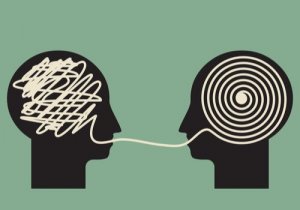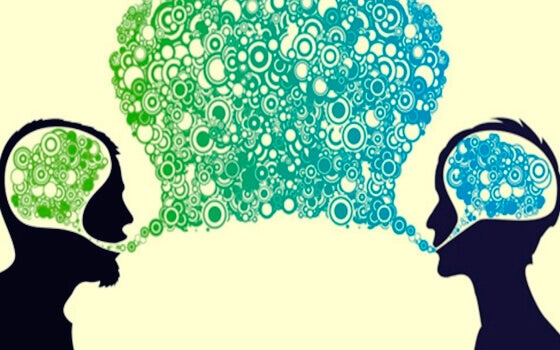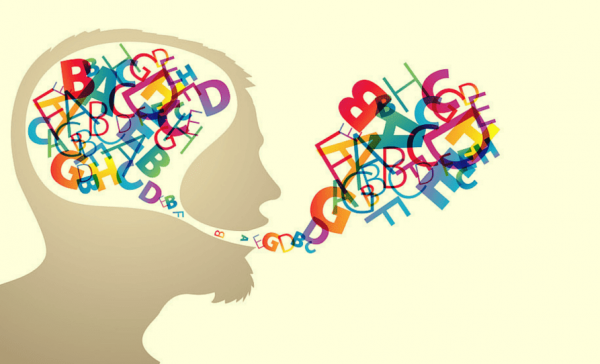Milton Erickson: How Changing Your Language Can Change Your Mind


Reviewed and approved by the psychologist Sergio De Dios González
Milton Erickson is considered a creative genius. Perhaps this is due to the fact that other psychiatrists found his therapeutic approach so difficult to replicate. This American psychiatrist and psychologist was a pioneer in hypnosis therapies to the point of achieving legendary status. Milton Erickson developed, among other tools, therapeutic strategies based on how changing your language can “change” your mind.
Numerous schools of Ericksonian hypnosis have appeared all over the world. Brief therapy, solution-focused therapy, strategic therapy, and systemic family therapy are all influenced by Milton Erickson’s work. It also inspired the creators of NLP (neuro-linguistic programming).
Milton Erickson and his true legacy
This particular model received the name The Milton Model in honor of this prestigious therapist. The creators of NLP studied the system used by Dr. Erickson and updated their strategies. Currently, experts use this model effectively in both therapeutic and non-therapeutic settings. It’s an example of the strategic use of language to change the mind.

This approach has three basic characteristic elements:
- The nominalizations. These are noun expressions, usually derived from verbs. For example, the word “knowledge” (verb to know). Each person personalizes the final meaning of the term “knowledge” in reference to personal experiences.
- The use of “no”. The expression of denial doesn’t exist as such in mental images, sounds, or sensations. Denial exists only in spoken or written language or in symbolic representations, but not in mental images. The best-known example is the phrase “Don’t think of a blue elephant”. The mind hears the word “no”, but immediately “sees” a blue elephant.
- Analogous underlining. This is an instrument of persuasion created by Erickson, based on the idea that only a part of your communication is conscious. Analogous underlining is applied by emphasizing a word that’s intended to remain in the speaker’s subconscious. It’s done by adding silence or a gesture while the person pronounces the word, and sometimes even involves a change in the tone of voice.
The language map
Despite the fact that you’re often not aware of it, both in your communication with other people and with yourself, the language you use configures a map. This map affects your imagination, thoughts, and emotions. At the same time, this linguistic map would develop your reality filter. Thus, changing your language to change your mind occurs when you recognize that map and change it, among other things.
It’s through this map that people express themselves through their behavior, beliefs, identity, and values. Moreover, with the use of language, you have a powerful weapon to influence yourself and other people. You’re aware of what you say but often not how you say it.
Language gives power and takes it away
The linguistic patterns that you adopt are, in many cases, inherited from your surroundings. You use and repeat them without analyzing them in any way. However, if you become aware of the terms and the way you use them, you’ll have a different perspective regarding the relationship you have with yourself and others.
There’s a kind of language, both internal and external, that inhibits you. There are several types, but the clearest example is in phrases such as “My mother’s stressing me out”. This type of language not only inhibits you, but also empowers the other person.
To change your language patterns, the first step is to get to know how you’re using it. If you change the above phrase to “I’m getting stressed out with my mother”, even though it’s apparently the same thing, there’s actually a big change in perspective. In this case, now you have the power to change this uncomfortable situation.

Changing your language to change your mind
Either the hypnotic therapy through language used by Milton Erickson or NLP would be two of the ways you can become more aware of how you can change some of these linguistic patterns. This will help you to considerably change and improve your perception and attitudes towards many aspects of your life.
Becoming aware of how, according to the paradigm initiated by Milton Erickson, these linguistic patterns affect emotions, both positive and negative ones, would be the first step towards changing your mind.
Milton Erickson is considered a creative genius. Perhaps this is due to the fact that other psychiatrists found his therapeutic approach so difficult to replicate. This American psychiatrist and psychologist was a pioneer in hypnosis therapies to the point of achieving legendary status. Milton Erickson developed, among other tools, therapeutic strategies based on how changing your language can “change” your mind.
Numerous schools of Ericksonian hypnosis have appeared all over the world. Brief therapy, solution-focused therapy, strategic therapy, and systemic family therapy are all influenced by Milton Erickson’s work. It also inspired the creators of NLP (neuro-linguistic programming).
Milton Erickson and his true legacy
This particular model received the name The Milton Model in honor of this prestigious therapist. The creators of NLP studied the system used by Dr. Erickson and updated their strategies. Currently, experts use this model effectively in both therapeutic and non-therapeutic settings. It’s an example of the strategic use of language to change the mind.

This approach has three basic characteristic elements:
- The nominalizations. These are noun expressions, usually derived from verbs. For example, the word “knowledge” (verb to know). Each person personalizes the final meaning of the term “knowledge” in reference to personal experiences.
- The use of “no”. The expression of denial doesn’t exist as such in mental images, sounds, or sensations. Denial exists only in spoken or written language or in symbolic representations, but not in mental images. The best-known example is the phrase “Don’t think of a blue elephant”. The mind hears the word “no”, but immediately “sees” a blue elephant.
- Analogous underlining. This is an instrument of persuasion created by Erickson, based on the idea that only a part of your communication is conscious. Analogous underlining is applied by emphasizing a word that’s intended to remain in the speaker’s subconscious. It’s done by adding silence or a gesture while the person pronounces the word, and sometimes even involves a change in the tone of voice.
The language map
Despite the fact that you’re often not aware of it, both in your communication with other people and with yourself, the language you use configures a map. This map affects your imagination, thoughts, and emotions. At the same time, this linguistic map would develop your reality filter. Thus, changing your language to change your mind occurs when you recognize that map and change it, among other things.
It’s through this map that people express themselves through their behavior, beliefs, identity, and values. Moreover, with the use of language, you have a powerful weapon to influence yourself and other people. You’re aware of what you say but often not how you say it.
Language gives power and takes it away
The linguistic patterns that you adopt are, in many cases, inherited from your surroundings. You use and repeat them without analyzing them in any way. However, if you become aware of the terms and the way you use them, you’ll have a different perspective regarding the relationship you have with yourself and others.
There’s a kind of language, both internal and external, that inhibits you. There are several types, but the clearest example is in phrases such as “My mother’s stressing me out”. This type of language not only inhibits you, but also empowers the other person.
To change your language patterns, the first step is to get to know how you’re using it. If you change the above phrase to “I’m getting stressed out with my mother”, even though it’s apparently the same thing, there’s actually a big change in perspective. In this case, now you have the power to change this uncomfortable situation.

Changing your language to change your mind
Either the hypnotic therapy through language used by Milton Erickson or NLP would be two of the ways you can become more aware of how you can change some of these linguistic patterns. This will help you to considerably change and improve your perception and attitudes towards many aspects of your life.
Becoming aware of how, according to the paradigm initiated by Milton Erickson, these linguistic patterns affect emotions, both positive and negative ones, would be the first step towards changing your mind.
This text is provided for informational purposes only and does not replace consultation with a professional. If in doubt, consult your specialist.







